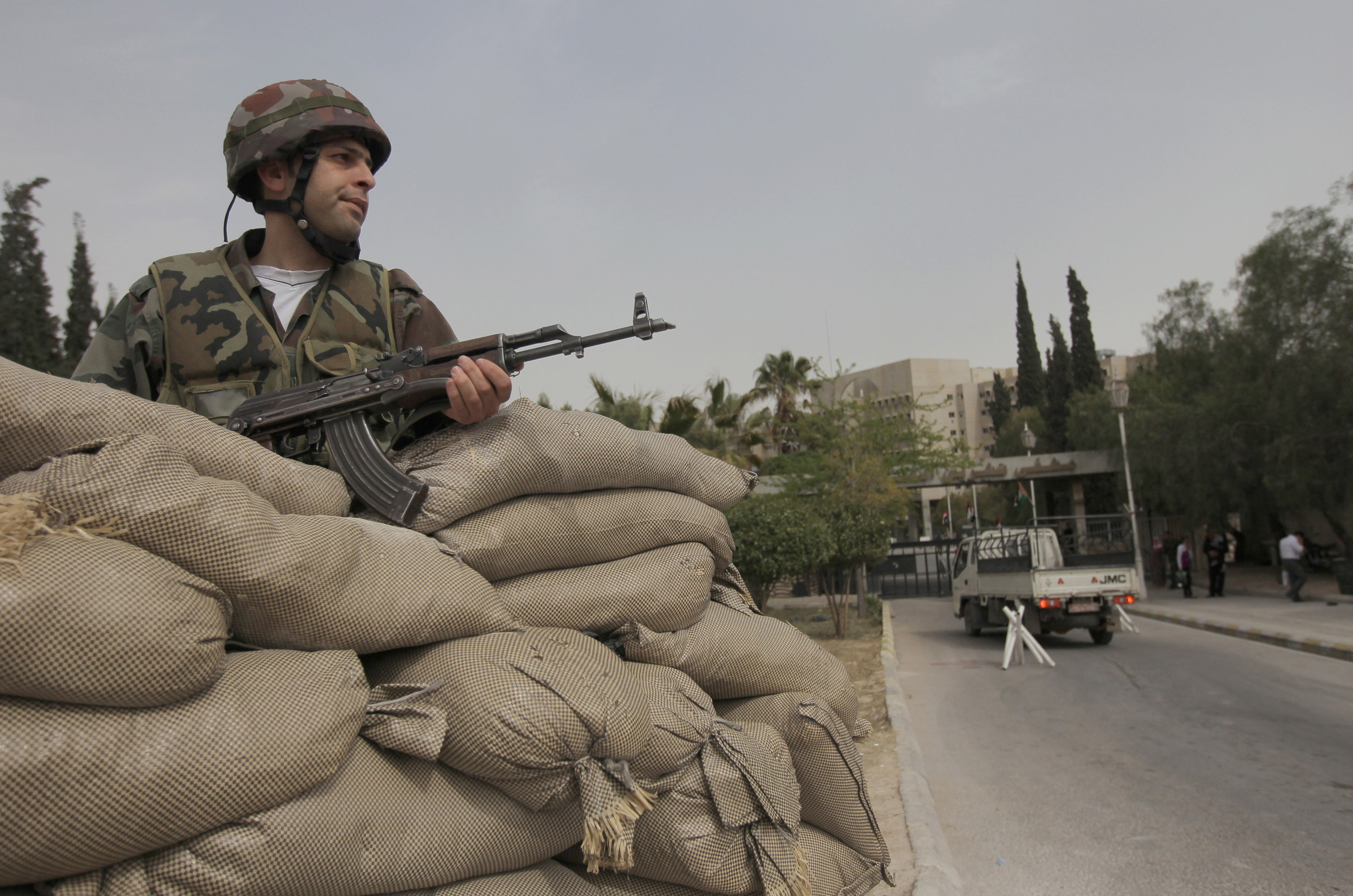MOSCOW, October 5 - RAPSI, Ingrid Burke. In a show of solidarity lacking in recent precedent, the UN Security Council (UNSC) unanimously “strongly condemned” the Syrian armed forces for having violated international law, and called out the Assad regime for its failure to respect Turkey’s territorial sovereignty.
The shelling by Syrian armed forces in the Turkish border town of Akcakale killed five civilians - all women and children - and injured nine.
Notably, the UNSC cast the shelling by Syrian forces as a violation of international law and urged the Assad regime to pull it together: “The members of the Security Council underscored that this incident highlighted the grave impact the crisis in Syria has on the security of its neighbours and on regional peace and stability. The members of the Council demanded that such violations of international law stop immediately and are not repeated. The members of the Security Council called on the Syrian Government to fully respect the sovereignty and territorial integrity of its neighbours.”
Territorial integrity, a fundamental principle of public international law, was codified in Chapter 1 of the UN Charter, which reads in part, “All Members shall refrain in their international relations from the threat or use of force against the territorial integrity or political independence of any state…”
A statement released separately by UN Secretary General Ban Ki-moon urged to the Syrian authorities the imperative of respecting territorial integrity as well, and reiterated the threat of Syria’s internal conflict spilling over into Turkey, stating: “Today’s incidents, where firing from Syria struck a Turkish town, again demonstrated how Syria’s conflict is threatening not only the security of the Syrian people, but increasingly causing harm to its neighbours.”
A number of officials have expressed concern that if permitted to carry on unabated, Syria’s present civil conflict threatens to give way to full scale regional or international warfare.
Speaking to the point with RIA Novosti yesterday a NATO official condemned the attack as a “flagrant violation of international law,” urging that it “represents a clear and present danger to one [NATO] member.”
Russia’s consent to the inclusion of the Assad regime is notable due to its demonstrated commitment over the months to working with the Assad regime in order to reach a ceasefire. It has been widely reported however that Russia did succeed in blocking an initial draft of the UNSC statement. According to the BBC, the early version would have referred to “international peace and security,” which could have paved the way for a stronger international response.
The UN Charter vests the UNSC with a wide array of powers, most of which are only invoked when such are rendered necessary by the need “to maintain or restore international peace and security.” While peaceful means are preferred, the Charter goes so far as to provide for the use of military force if economic, political, diplomatic, and other such sanctions prove insufficient. Thus a declaration that Syria posed a threat to international peace and security could potentially open the international-justice floodgates.
The UNSC has been split into two camps on the Syria issue in recent months. On the one hand, China and Russia maintain the imperative of, above all, protecting territorial integrity and sovereignty. On the other, the US and its Western allies have pointed both to internal humanitarian issues and external security issues in urging the UNSC’s adoption of a tougher stance on the Assad regime. Toward this end, Russia and China have consistently blocked UNSC resolutions aimed at increasing pressure on the Syrian government.
Still, in closing the UNSC merely “called for restraint.” But these are only words.
In terms of UN action, the UN Human Rights Council (UNHRC) recently appointed the highly controversial former UN war crimes prosecutor Carla Del Ponte to its Commission of Inquiry on Syria (CIS). Del Ponte has made a career prosecuting high profile criminal defendants, from Mafiosos to genocidaires. She served for several years as the chief prosecutor for the UN’s war crimes tribunals for Rwanda and the former Yugoslavia.
By way of an official explanation for its appointment of the world’s most notorious war crimes prosecutor to the observer panel, the UNHRC only stated that the decision was made after the CIS mandate was extended and “given that the situation on the ground had shown no sign of improvement…”
UK Foreign Secretary William Hague has lobbied for the International Criminal Court to eventually prosecute the perpetrators responsible for the atrocities that continue to occur in the context of Syria’s civil war, recently urging, “We must continue work to bring these atrocities to light. Those committing these crimes must know that they will be held accountable. That is why I will continue to call for the situation in Syria to be referred to the International Criminal Court, and the UN Commission of Inquiry will have the active support of the United Kingdom. I call on all sides, including armed opposition groups in Syria, to uphold human rights and international law.”
The CIS is a special UN commission formed in order to observe and investigate the Syria conflict, determining such factors as the duration and intensity of the internal warfare, and drawing conclusions on the violation of international law. According to a report issued last August based on its observations, which provided ample and graphic detail of the alleged atrocities committed by both sides of the dispute, forces loyal to the regime are believed to have committed “the crimes against humanity of murder and of torture, war crimes and gross violations of international human rights law and international humanitarian law, including unlawful killing, torture, arbitrary arrest and detention, sexual violence, indiscriminate attack, pillaging and destruction of property.”



